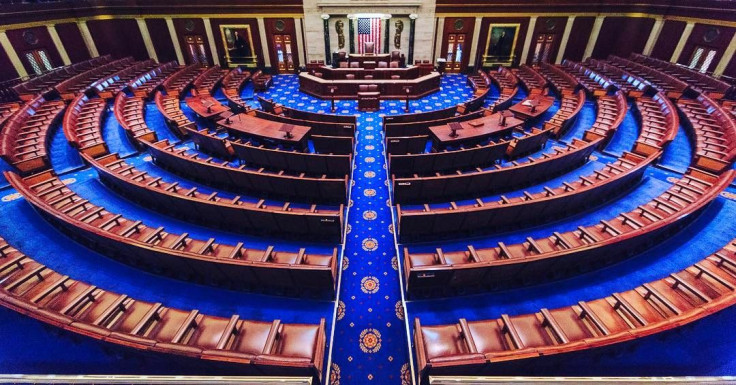House Voting On Removing Statues Of Confederate Leaders, Racist Officials From Capitol Hill

KEY POINTS
- The House of Representatives is slated to vote on the potential removal of statues depicting Confederate leaders and other controversial figures
- It is expected to face an uphill battle in the Republican-held Senate if it passes, with many arguing the decision to remove statues is up to the states
- A descendant of Dred Scott argued to keep the statues, but add new ones that would provide better historical context
The U.S. House of Representatives was slated to vote Wednesday on legislation to remove Confederate statues from the Capitol building. It’s the latest in a series of legislative actions in the wake of the Black Lives Matter movement opting to remove monuments of Confederate leaders and figures considered racist across the county.
“Defenders and purveyors of sedition, slavery, segregation, and white supremacy have no place in this temple of liberty,” House Majority Leader Steny Hoyer said in a press release.
Hoyer introduced the bill as part of the congressional push to have the statues removed. If it passes, the statues of anyone who voluntarily served the Confederacy during the Civil War or openly defended slavery, racism, or segregation would be removed. These include states of Confederate president Jefferson Davis, Gen. Robert E. Lee, and Chief Justice Roger B. Taney.
Taney was one of the justices who presided over the Dred Scott case of 1857, where the Supreme Court ruled African Americans weren’t citizens and those who had escaped slavery needed to return to the South.
“While the removal of Chief Justice Roger Brooke Taney's bust from the United States Capitol does not relieve the Congress of the historical wrongs it committed to protect the institution of slavery, it expresses Congress' recognition of one of the most notorious wrongs to have ever taken place in one of its rooms, that of Chief Justice Roger Brooke Taney's Dred Scott v. Sandford decision,” the legislation said.
If the bill passes, a bust of Thurgood Marshall, the first Black Supreme Court Justice, would replace Taney.
The bill has faced typical resistance from many Republicans in Congress, arguing it is up to the states on whether to remove the statues. The bill also will need to pass the Senate, where it is expected to face an uphill battle.
However, some surprising voices have also come forward in defense of the statues.
“I’m not really a fan of wiping things out,” Dred Scott’s great-great-granddaughter Lynne Jackson told the Associated Press. She argued to leave the bust of Chief Justice Taney up, and instead add a bust or statue of Scott to go alongside it to provide context and highlight the historical importance of the two men.
© Copyright IBTimes 2025. All rights reserved.





















